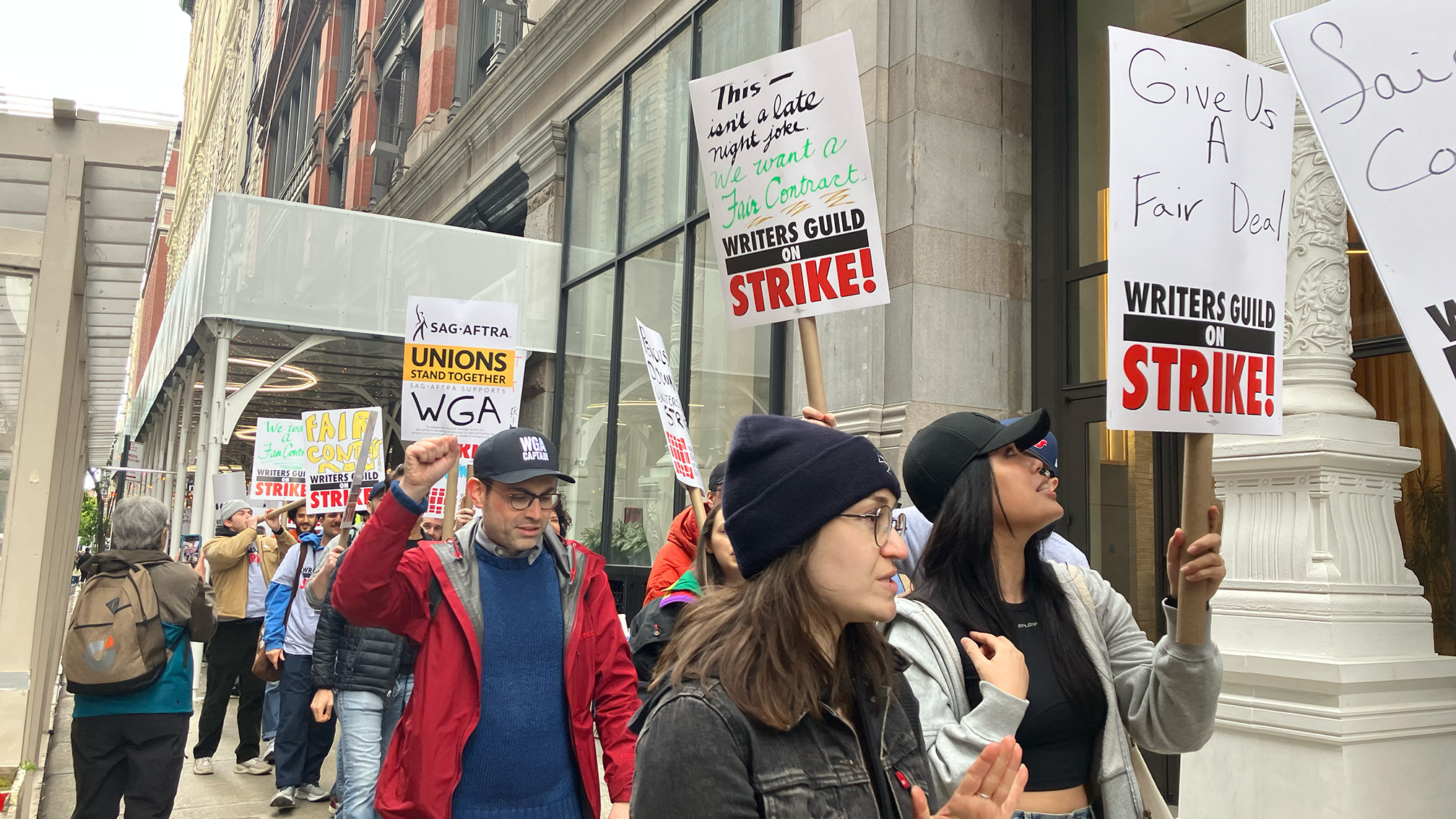11,500 TV and film writers across the United States are completing the first week of their strike on Friday, May 5. The Writers Guild of America, the union representing over eleven thousand writers in the entertainment industry, called a strike on May 1, International Workers’ Day, effective May 2 at 12:01 am, after writers and studios were unable to reach an agreement on key proposals.
WGA writers had held a strike authorization vote on April 17. Over 9,000 writers voted to strike with more than 98% of the vote.
The WGA is demanding fairer compensation, better benefits, and more job security. Writers argue that with the massive success of streaming services, writer compensation has not kept up with studio profits.
Big studios such as Netflix, Amazon, and NBCUniversal, represented by the Alliance of Motion Picture and Television Producers (AMPTP), have rejected core demands including minimum staff guarantees and offered lower counteroffers to things like demands on minimum pay increases. The Guild claims that its proposals would only cost $429 million per year, while AMPTP’s counter offers amount to only $86 million per year.
Writers are also concerned about studios using Artificial Intelligence to replace writer’s work. The WGA has proposed regulations on AI use, which AMPTP has rejected.
Peoples Dispatch spoke to writer Greg Iwinski on the picket line outside the Netflix headquarters in New York City. Iwinski is a member of the council for WGA East and a part of the negotiating committee. “We had six weeks of time face to face, and during that time they didn’t want to talk about core issues how many writers make a show, how long should you be there, what does it mean for a screenwriter who has to do endless rewrites, what about late night writers who are working with no protections at all on streaming, what about AI,” he said.
The AMPTP is “pleading poverty” as an excuse to not meet writers’ demands, says Iwinski. Studios have claimed that WGA’s proposed staffing minimums and a guaranteed minimum number of weeks of employment are its “primary sticking points.” However, AMPTP claims that it would have gone farther to meet writers’ demands if not for “the magnitude of other proposals still on the table that the Guild continues to insist upon.”
“[Studios are] making enough that last year they spent 19 billion on making shows,” says Iwinski. “They’re pleading poverty at the same time that they’re buying other companies and leveraging debt.”
Writers have consistently highlighted that negative response to their demands by the AMPTP is incompatible with the ballooning profits of the streaming industry. “In 2000, the combined entertainment operating profits of Disney, Fox, Paramount, NBC, Universal, and Time Warner were approximately $5 billion,” writes the WGA. “By 2019, adding in Netflix, they were $30 billion out of more than $50 billion in total company profits and remained almost as high through the pandemic. Even excluding news and sports networks, entertainment profits were estimated to be more than $20 billion in 2021.”
Workers across industries have shown solidarity towards striking writers. The International Brotherhood of Teamsters has expressed support. On the picket line, workers at the International Alliance of Theatrical Stage Employees (IATSE) and the Screen Actors Guild – American Federation of Television and Radio Artists (SAG-AFTRA) were visible. Nevada, a SAG-AFTRA actor marching the picket line, told Peoples Dispatch, “I am supporting in solidarity because without the writers, it’s mime. I need the words to be able to do my job.”





